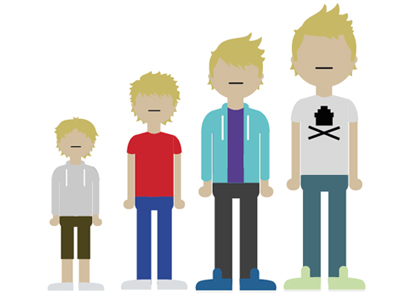One of the more distinctive concepts in Buddhism is non-self. It does not mean that you do not exist physically. It does mean that you don't exist as a permanent, solid, independent entity. "You" are as changeable as the weather -- and that's good news. You're not always angry, not always sad, not always giddy or goofy. You sometimes are all of those (I hope), but you cycle through them.
That not how we see ourselves, though. We think that we are certain things -- you react in a certain way that draws a response from someone and you say, "That's just how I am." Generous. Kind. Messy. Speedy. Tactless. Attentive. Whatever.
A new study shows that even when we acknowledge that we've changed over time, we don't expect that to continue.
"Is it really the case that we all think that development is a process
that's brought us to this particular moment in time, but now we're
pretty much done?" psychology research Daniel Gilbert asked.
He and his colleagues interviewed 19,000 people, asking some how much they had changed over the past 10 years and others how much they expect to change in the next 10 years.
"Young people, middle-aged people, and older people all believed they had
changed a lot in the past but would change relatively
little in the future," the study abstract says. "People, it seems, regard
the present as a watershed moment at which they have finally become the
person
they will be for the rest of their lives."
This belief, described by Gilbert as the
“end of history illusion,” had practical consequences, leading people to
overpay
for future opportunities to indulge their
current preferences, the study says.
The study doesn't address this, but Buddhism says you control how you will change. Turn your mind toward the dharma -- practice patience, exertion, kindness, generosity, and mindfulness -- and you will suffer less. Since you're going to change anyway, why not do it in a way that benefits all beings?
Subscribe to:
Post Comments (Atom)


No comments:
Post a Comment